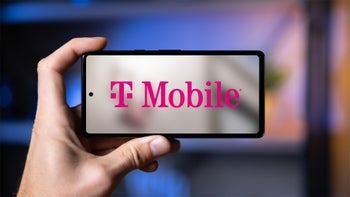UN report links Telegram to organized crime surge in Southeast Asia

Criminal networks across Southeast Asia are increasingly relying on the messaging platform Telegram, which has significantly transformed how large-scale illegal operations are conducted. That's according to a United Nations report cited by Reuters.
This report adds to the growing accusations against the controversial encrypted app, following France’s unprecedented move to charge its founder, Pavel Durov, under a strict new law targeting platforms that facilitate criminal activities.
The UN Office for Drugs and Crime (UNODC) noted that stolen information, such as credit card details, passwords, and browsing histories, is widely traded on Telegram’s vast, minimally regulated channels. In addition, cybercrime tools, including deepfake technology used for scams and malware designed to steal data, are commonly sold, while unauthorized cryptocurrency exchanges are being used to launder money.
"We move 3 million USDT stolen from overseas per day," the report quoted one crime-promoting ad.
There is "strong evidence of underground data markets moving to Telegram and vendors actively looking to target transnational organized crime groups based in Southeast Asia", the report reads.
Southeast Asia has become a key center for a multibillion-dollar industry that scams victims worldwide. Much of this activity is driven by Chinese crime syndicates operating from heavily secured compounds, often staffed by trafficked workers, the report claims. According to the UN Office for Drugs and Crime (UNODC), the industry generates an estimated $27.4 billion to $36.5 billion annually.
In August, Pavel Durov, the Russian-born founder of Telegram, was arrested in Paris and charged with enabling criminal activity on the platform, including the distribution of child sexual abuse material. This arrest has sparked discussions about the legal responsibility of app providers and the balance between free speech and law enforcement.
Telegram, which has nearly 1 billion users, did not immediately comment on the situation to Reuters. After his arrest, Durov, who is now out on bail, announced that the app would start sharing users' IP addresses and phone numbers with authorities in response to legal requests. He also indicated that certain features prone to misuse for illegal purposes would be removed.
Benedikt Hofmann, deputy representative for Southeast Asia and the Pacific at UNODC, explained that the platform provides a user-friendly environment for criminals. He noted that this increases the risk of personal data being exploited for scams or other illicit activities.
The UNODC report highlighted that the massive profits earned by these criminal organizations have pushed them to adopt new technologies, such as malware, generative AI, and deepfake technology, to further their operations. The agency identified over 10 deepfake software service providers specifically catering to criminal groups involved in cyber-enabled fraud across Southeast Asia.
Meanwhile, South Korean authorities have launched an investigation into Telegram, which is believed to be heavily used in the distribution of deepfake adult movies in the country. Separately, last month, it was reported that a hacker exploited Telegram chatbots to leak sensitive data from Star Health, a leading Indian insurer. This breach, which allowed access to personal information like names, addresses, and medical diagnoses, has led Star Health to take legal action against the platform.
So, if Pavel Durov was arrested because crime was being committed on Telegram, shouldn't we also ban AI altogether, if it's being used for scam deepfakes? Since we're at it, why not ban electricity to solve our problems?
The UN Office for Drugs and Crime (UNODC) noted that stolen information, such as credit card details, passwords, and browsing histories, is widely traded on Telegram’s vast, minimally regulated channels. In addition, cybercrime tools, including deepfake technology used for scams and malware designed to steal data, are commonly sold, while unauthorized cryptocurrency exchanges are being used to launder money.
There is "strong evidence of underground data markets moving to Telegram and vendors actively looking to target transnational organized crime groups based in Southeast Asia", the report reads.
Southeast Asia has become a key center for a multibillion-dollar industry that scams victims worldwide. Much of this activity is driven by Chinese crime syndicates operating from heavily secured compounds, often staffed by trafficked workers, the report claims. According to the UN Office for Drugs and Crime (UNODC), the industry generates an estimated $27.4 billion to $36.5 billion annually.
Telegram, which has nearly 1 billion users, did not immediately comment on the situation to Reuters. After his arrest, Durov, who is now out on bail, announced that the app would start sharing users' IP addresses and phone numbers with authorities in response to legal requests. He also indicated that certain features prone to misuse for illegal purposes would be removed.
The UNODC report highlighted that the massive profits earned by these criminal organizations have pushed them to adopt new technologies, such as malware, generative AI, and deepfake technology, to further their operations. The agency identified over 10 deepfake software service providers specifically catering to criminal groups involved in cyber-enabled fraud across Southeast Asia.
Meanwhile, South Korean authorities have launched an investigation into Telegram, which is believed to be heavily used in the distribution of deepfake adult movies in the country. Separately, last month, it was reported that a hacker exploited Telegram chatbots to leak sensitive data from Star Health, a leading Indian insurer. This breach, which allowed access to personal information like names, addresses, and medical diagnoses, has led Star Health to take legal action against the platform.
Follow us on Google News














Things that are NOT allowed:
To help keep our community safe and free from spam, we apply temporary limits to newly created accounts: